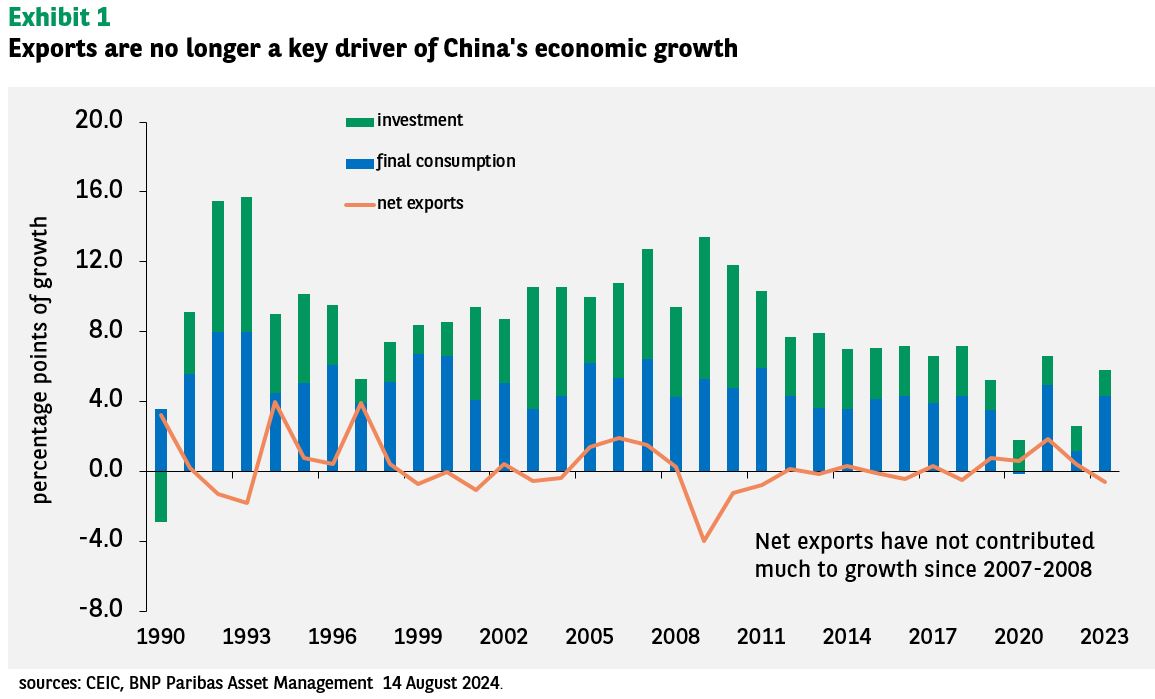The Importance Of Middle Management: Bridging The Gap Between Leadership And Employees

Table of Contents
Effective Communication and Information Flow
Middle managers are essential for clear and consistent communication. They act as a vital communication link, translating complex directives from upper management into actionable tasks for their teams and vice versa, ensuring effective feedback loops. Without effective middle management, information can become distorted, leading to misinterpretations, delays, and ultimately, project failure.
Translating Strategy into Action
Middle managers interpret strategic goals set by senior leadership and break them down into manageable, achievable objectives for their teams. This ensures that everyone understands their role in the bigger picture and how their individual contributions contribute to the overall success of the organization.
- They create clear performance expectations and metrics: Setting measurable goals provides a clear framework for success and allows for effective performance monitoring.
- They provide regular updates to upper management on progress and challenges: This ensures proactive problem-solving and prevents minor issues from escalating into major problems.
- They facilitate workshops and training to ensure team understanding of strategic initiatives: This fosters a shared understanding and commitment to achieving organizational goals.
Facilitating Upward Communication
Middle managers act as a vital conduit, gathering feedback and concerns from employees and conveying them to senior leadership. This two-way communication is crucial for building trust and ensuring that the needs and perspectives of all employees are considered.
- They identify potential roadblocks and challenges before they escalate: Proactive identification of potential issues allows for timely intervention and prevents major disruptions.
- They represent the needs and concerns of their teams to upper management: This ensures that the voice of the employees is heard and considered in decision-making processes.
- They foster a culture of open communication and feedback within their teams: This creates a more collaborative and supportive work environment, leading to increased productivity and job satisfaction.
Mentorship and Employee Development
Middle managers play a critical role in employee development, mentoring, and training. They provide direct support and guidance, fostering growth within the team and contributing to the overall talent development strategy of the organization. Investing in middle management's mentorship skills is investing in the future of the workforce.
On-the-Job Training and Support
Middle managers provide daily coaching and support, addressing individual employee needs and challenges. This hands-on approach ensures that employees receive the necessary guidance to succeed in their roles.
- They identify training gaps and recommend development opportunities: This ensures that employees have the skills and knowledge to perform their jobs effectively.
- They offer mentorship and guidance on career progression: This helps employees to develop their careers within the organization and fosters loyalty and retention.
- They conduct regular performance reviews and provide constructive feedback: This provides employees with valuable insights into their strengths and weaknesses, enabling them to improve their performance.
Boosting Employee Morale and Engagement
Effective middle managers cultivate a positive and supportive work environment, leading to increased employee engagement and productivity. A motivated team is a productive team, and middle managers are key players in driving that motivation.
- They recognize and reward employee contributions: Acknowledging accomplishments fosters a sense of value and appreciation.
- They foster teamwork and collaboration: A collaborative work environment enhances communication and problem-solving abilities.
- They address employee concerns and resolve conflicts promptly: This demonstrates that their concerns are valued and that they are supported by management.
Driving Operational Efficiency and Productivity
Middle managers are directly responsible for the day-to-day operations of their teams, ensuring efficiency and productivity. Their ability to effectively manage resources and solve problems directly impacts the bottom line.
Resource Allocation and Management
Middle managers optimize resource allocation to maximize efficiency and minimize waste. This includes managing budgets, allocating resources effectively, and identifying opportunities for improvement.
- They manage budgets and allocate resources effectively: This ensures that resources are used wisely and efficiently.
- They streamline processes and improve workflows: This enhances efficiency and reduces wasted time and effort.
- They identify opportunities for improvement and implement best practices: This continuous improvement approach enhances overall operational effectiveness.
Problem-Solving and Decision-Making
Middle managers are responsible for addressing operational challenges and making timely decisions within their scope of authority. This requires strong problem-solving skills, effective decision-making processes, and the ability to mitigate risks.
- They resolve conflicts and address employee concerns: This prevents minor issues from escalating and maintains a positive work environment.
- They identify and mitigate risks: This proactive approach helps to avoid potential problems and ensure business continuity.
- They make data-driven decisions to improve operational efficiency: Using data to inform decisions ensures that improvements are based on evidence and are effective.
Conclusion
In conclusion, the importance of middle management in bridging the gap between leadership and employees cannot be overstated. Effective middle management is crucial for clear communication, employee development, and operational efficiency. By investing in and developing strong middle management teams, organizations can foster a more productive, engaged, and successful workforce. Investing in strong middle management is an investment in the overall success of your organization. Prioritize the development and support of your middle management team to reap the rewards of improved communication, increased employee engagement, and enhanced operational efficiency. Don't underestimate the power of a strong middle management structure – it's the backbone of a successful organization.

Featured Posts
-
 Harvard And The Trump Administration A 1 Billion Funding Cut And Growing Conflict
Apr 22, 2025
Harvard And The Trump Administration A 1 Billion Funding Cut And Growing Conflict
Apr 22, 2025 -
 Analyzing The Economic Fallout Of Trumps Policies
Apr 22, 2025
Analyzing The Economic Fallout Of Trumps Policies
Apr 22, 2025 -
 Exploring The Countrys New Business Opportunities By Region
Apr 22, 2025
Exploring The Countrys New Business Opportunities By Region
Apr 22, 2025 -
 The Impact Of Tariffs On Chinas Export Led Growth Model
Apr 22, 2025
The Impact Of Tariffs On Chinas Export Led Growth Model
Apr 22, 2025 -
 The Future Of Nordic Security A Collaborative Approach By Sweden And Finland
Apr 22, 2025
The Future Of Nordic Security A Collaborative Approach By Sweden And Finland
Apr 22, 2025
